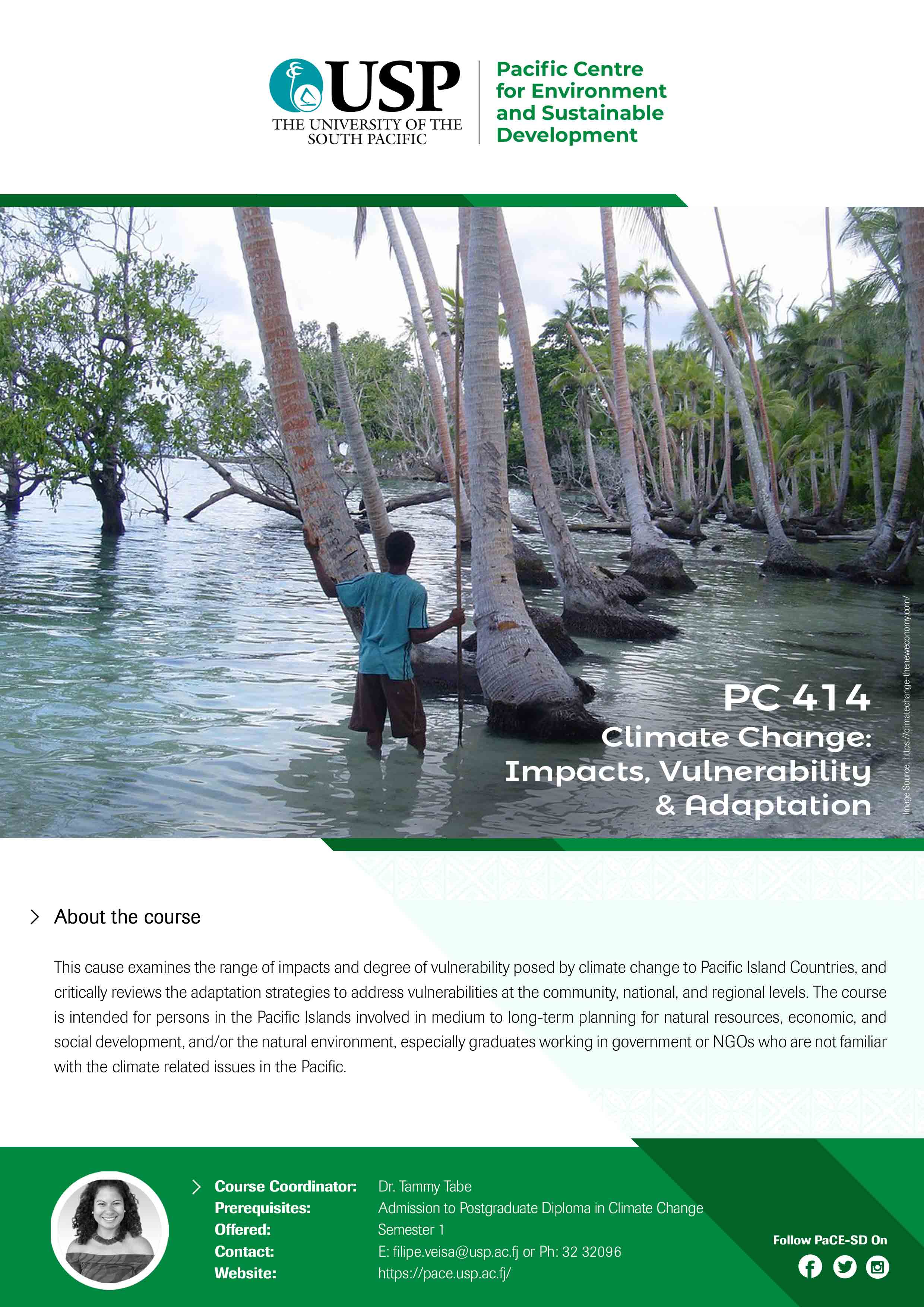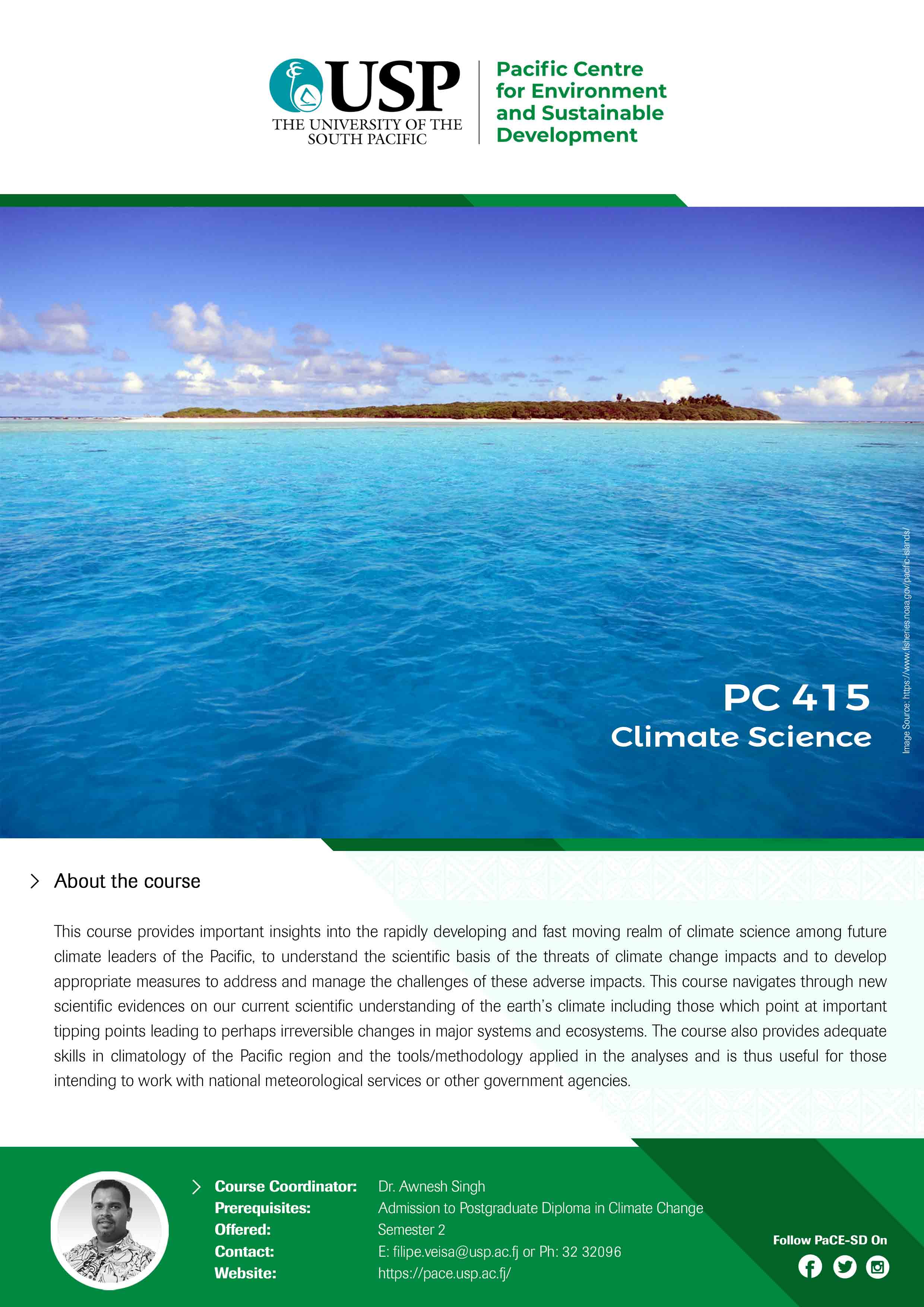At least 1 of PC428 or PC430 and any remaining 400 level PC Course or any of the following courses:
If you wish to progress onto Masters of Science in Climate Change, than you will need to do PC420, with either PC414 or PC415.
PC420: Research Projects in Climate Change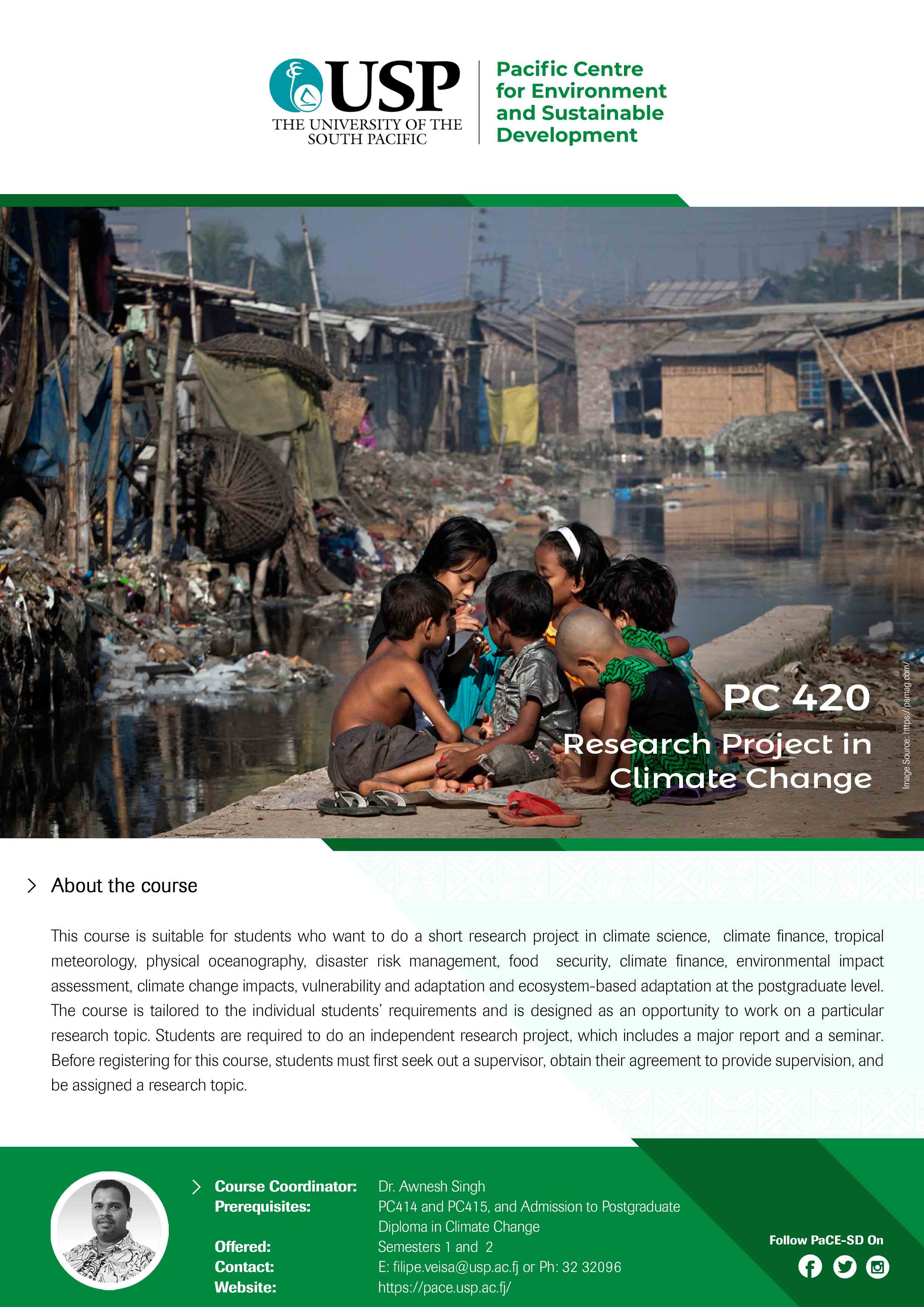
Semester: 1 & 2 Mode: O at C
Course Coordinator: Dr. Awnesh Singh
Course Description: The course is suitable for students who want to do a short research project in climate science, climate finance, tropical meteorology, physical oceanography, disaster risk management, food security, environment impact assessment, climate change impacts, vulnerability and adaptation and ecosystem-based adaptation at the postgraduate level. The course is tailored to the individual students’ requirements and is designed as an opportunity to work on a particular research topic. Students are required to do an independent research project, which includes a major report and seminar. Before registering for this course, students must first seek out a supervisor, obtain their agreement to provide supervision, and be assigned a research topic.
PC428: Tropical Meteorology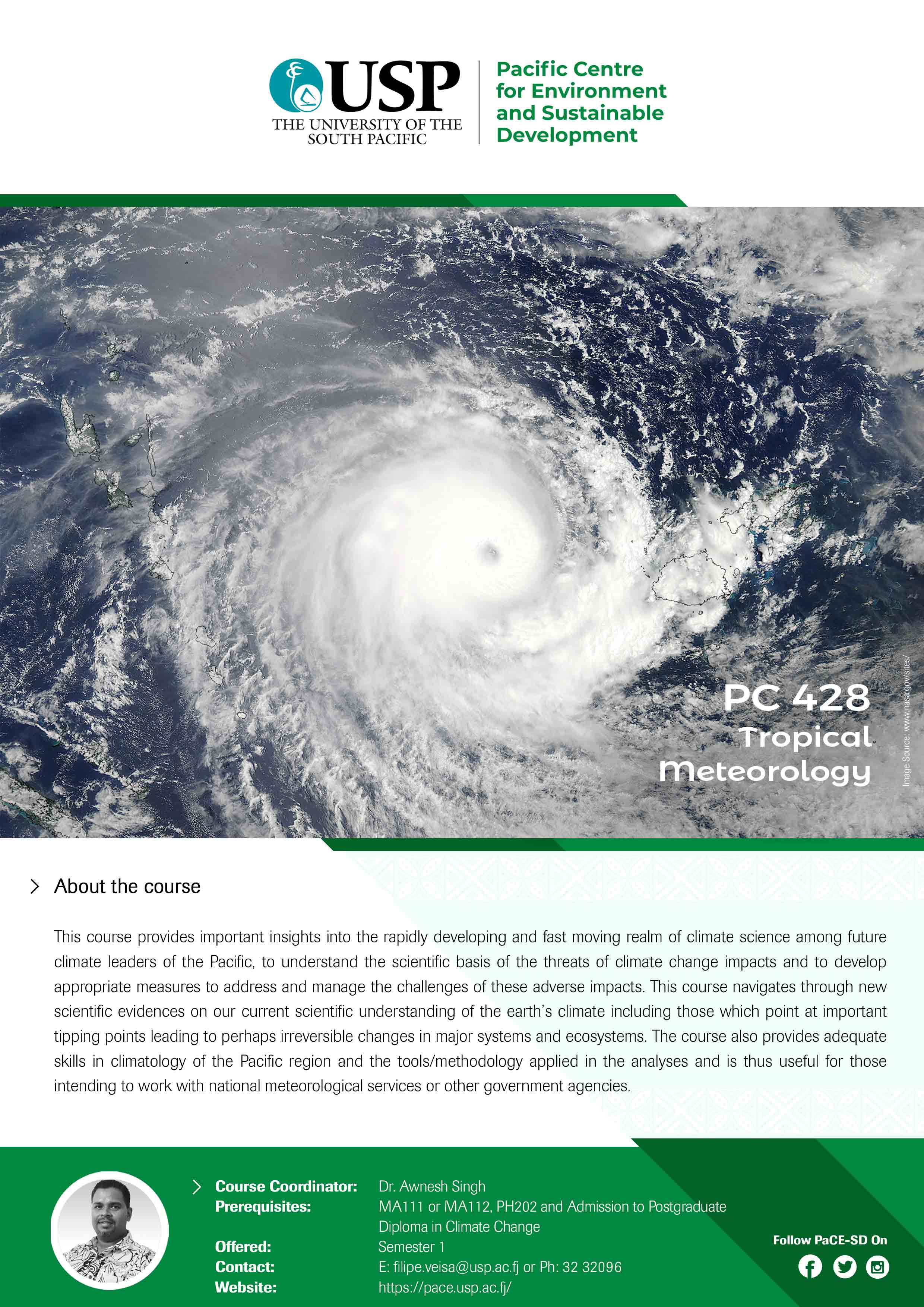
Semester: 1 Mode: O at C
Course Coordinator: Dr. Awnesh Singh
Course Description: The course provides and in-depth study of tropical atmospheric dynamics and processes. The course will cover atmospheric general circulation; the structure and behavior of weather systems; development, displacement and intensification of weather systems; key characteristics of the tropical atmosphere including convection, boundary layer processes, local and diurnal weather phenomena, mesoscale tropical systems, tropical storm structure, and energetics, and tropical cyclone development. The course is designed to provide a quantitative in depth understanding of key atmospheric processes and dynamics central to climate change in the region. It is an ideal course for students studying climate change science or interested in weather forecasting.
PC430: Advanced Physical Oceanography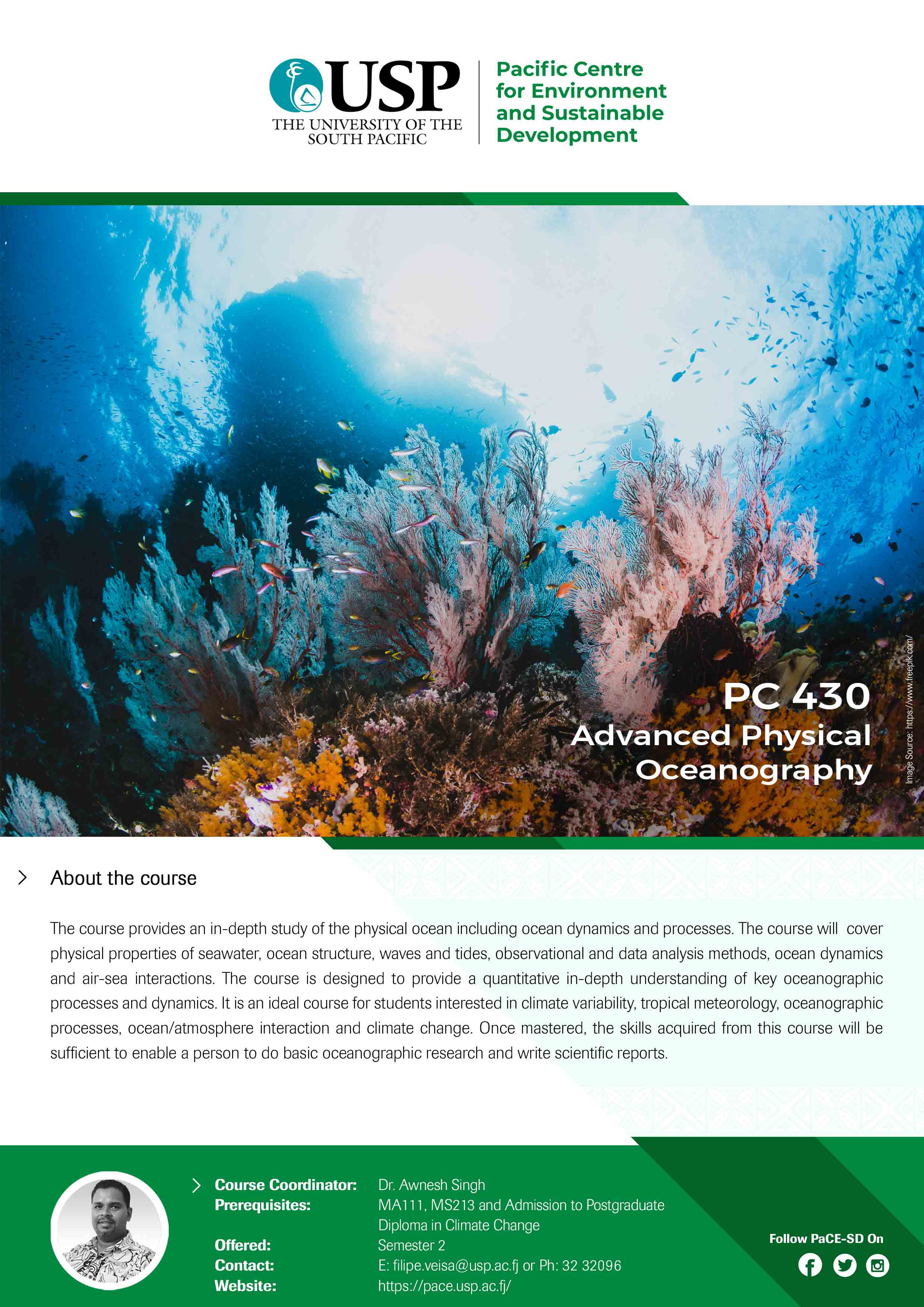
Semester: 2 Mode: O at C
Course Coordinator: Dr. Awnesh Singh
Course Description: The course provides an in-depth study of the physical ocean including ocean dynamics and processes. The course will cover physical properties of seawater, ocean structure, waves and tides, observational and data analysis methods, ocean dynamics and air-sea interactions. The course is designed to provide a quantitative in-depth understanding of key oceanographic processes and dynamics. It is an ideal course for students interested in climate variability, tropical meteorology, oceanographic processes, ocean/atmosphere interaction and climate change. Once mastered, the skills acquired from this course will be sufficient to enable a person to do basic oceanographic research and write scientific reports.
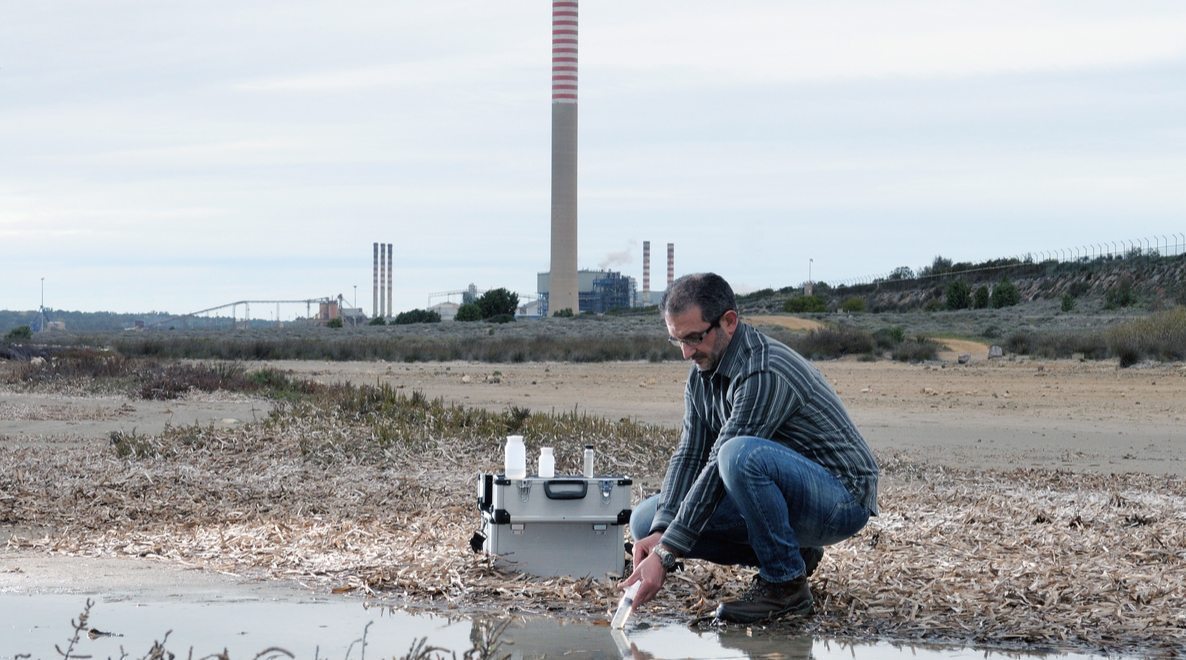 The Science Emphasis stream focuses on the foundation science of climate change globally and in the Pacific. This stream prepares students to become Pacific climate scientists with a strong quantitative understanding of observations, climate and earth system modelling, regional and global model downscaling of climate projections and impacts, data analysis, GIS and remote sensing in the Pacific context.
The Science Emphasis stream focuses on the foundation science of climate change globally and in the Pacific. This stream prepares students to become Pacific climate scientists with a strong quantitative understanding of observations, climate and earth system modelling, regional and global model downscaling of climate projections and impacts, data analysis, GIS and remote sensing in the Pacific context.